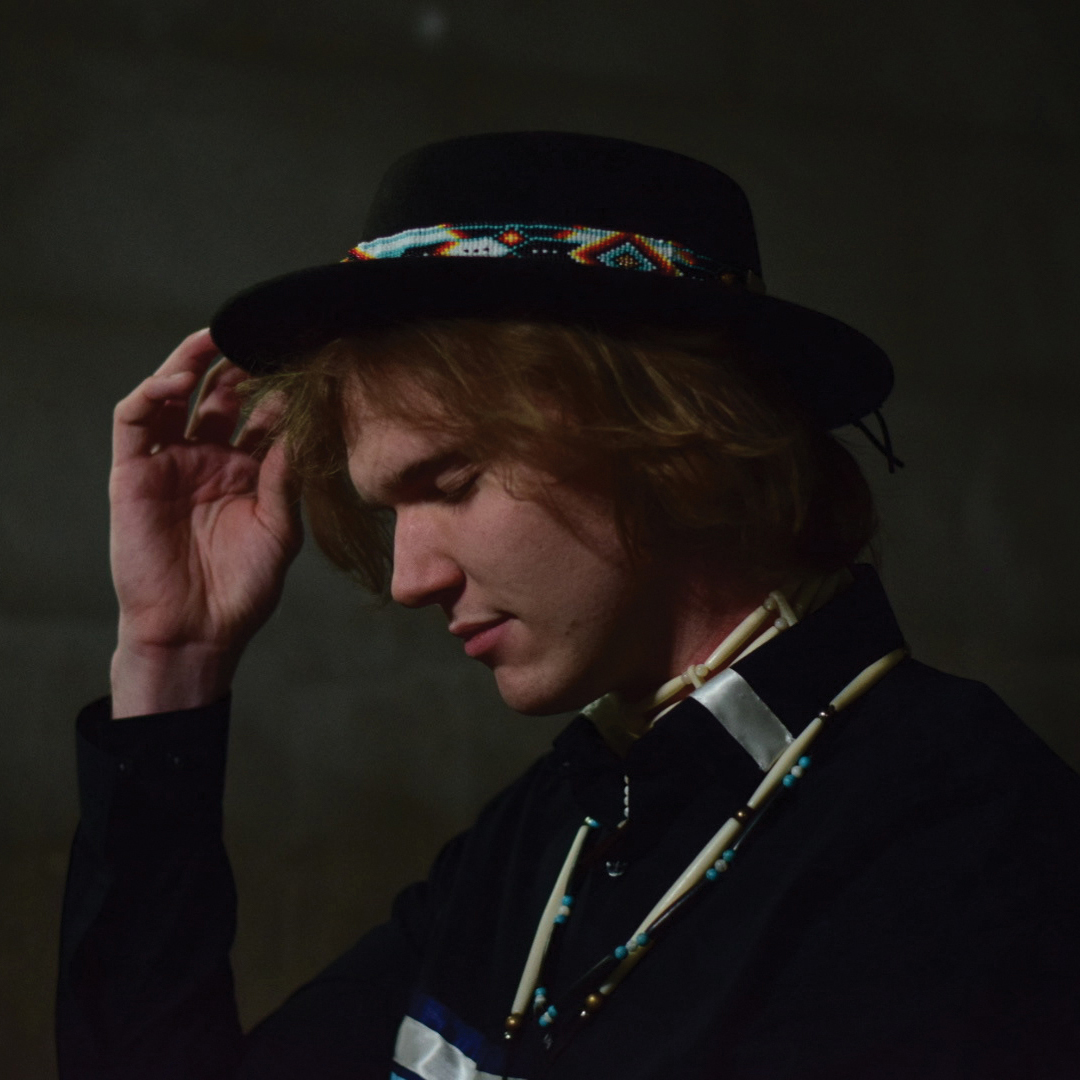I'm Keweenaw Bay Ojibwe. I'm not an enrolled citizen. Being unenrolled is very difficult. It's disheartening. My mom, my aunts, my grandma are all tribal members. I come from a tribe that has a pretty strict blood quantum requirement. You have to be at least a quarter. My mom is technically a quarter, so I'd be an eighth, which, in the grand scheme of things, is actually not very far removed. That invalidation is very difficult. It's also very difficult because I'm so pale. I've got wispy blond hair and pink skin. I'm also the only one in my mom's family that has blond hair. In high school, there was one person who liked to call me “Redneck Redskin.” I've never felt like I could say that I was Native. I didn't grow up with this strong identity, so sometimes it feels like I've just made it up. Which I haven't, but it can feel that way.
My mom's also not very connected to our tribe specifically. She didn't have the best relationship with our Native family, so there wasn't that close family bond that kept that culture alive. Now she's in a place where she's also reconnecting, but it's interesting. Normally it's Native youth reconnecting with their families that they haven't talked to about their identities because, a lot of times, families are encouraged to assimilate. In this case, it's my mom reconnecting through her son who goes to an institution with a Native community and is learning about decolonization and abolition.
When I filled out my personal information and demographic information, I debated whether or not I would put Native and white. I eventually decided that I would. Because of that, as an incoming freshman, I got emails from MSA. I saw an email about a Native family welcome roundtable. I responded, and it was something along the lines of, “I'm unenrolled, I've got an eighth blood quantum, am I allowed in this space?” I got an email like, “It just breaks my heart to have to address that because you're always welcome in this space. We don't care at all about blood quantum; we don't care if you're white. This is a space for you and your family.” Having that was very impactful. Then I got involved in NAISA. I knew that I wanted to reconnect, but I didn’t know how. Now, I would say I’m probably the most reconnected out of my immediate family. NAISA and the Indigenous community here were the catalyst.
Through personal experiences and just watching the way the University has reacted to students voicing their concerns about inequity, it's very evident that Northwestern cares more at the end of the day about their reputation, financial standing and alumni than they do their current students. In November, when the Rock was defaced, Northwestern didn't really have a definitive stance on that. They didn't send out an email when what happened with the Rock happened. I was pissed. I don't care who did it, but I do care that we take this moment and use it to push what marginalized people have been pushing on campus for a long time, that they're not represented and that they're not protected by the institution.
"There's so much that needs to change fundamentally. I think that comes down to just decolonizing the way institutions of higher education function. Northwestern needs to be held accountable for its history."
Kadin Mills, Medill second-year
"There's so much that needs to change fundamentally. I think that comes down to just decolonizing the way institutions of higher education function. Northwestern needs to be held accountable for its history."
Kadin Mills, Medill second-yearThe people who were forced to pick up the pieces were NAISA and the Native community. That night, when the Rock was found to be defaced, we were the ones who organized the gathering of all the Indigenous community at the CNAIR house. A lot of students felt the very heavy burden of having to deal with that, and then had to feel the heavy burden of planning these meetings with school leadership and Morton Schapiro. I think that these meetings are necessary. We've gotten lots of really good insight. It's great to have that confidential space in which we can talk with these administrators and talk about our own experiences and just heal together. It's not to blame anybody. It's not to point fingers. It's not to say, “You didn't do enough.” It's to heal and to heal as a community and to build trust so that communities like NAISA can have a good relationship with administration later on.
There's so much that needs to change fundamentally. I think that comes down to just decolonizing the way institutions of higher education function. Northwestern needs to be held accountable for its history. Northwestern is not held accountable for the Sand Creek Massacre. Acknowledging that is one step in supporting Indigenous people. I know that there are students and staff working on the advent of a scholarship for the descendants of the Cheyenne and Arapaho, specifically as reparations for Sand Creek. But Northwestern has denied John Evans having been accountable for Sand Creek, and I think that's a major problem. The University of Denver also has ties to John Evans, and they deemed that he is seriously culpable for creating the conditions for the massacre. At Northwestern, I don't know exactly what their statement is, but it is one of denial, which is deeply problematic.
Looking forward, we've got a lot to be grateful for. We've got a Native community that is beginning to thrive on campus. We're planning our first powwow. Now we've got a much larger social media following, which has been nice for our platform. I think people are starting to realize that Native people on campus have been struggling for quite a while. I'm very hopeful that this is the beginning of a serious reckoning on campus in terms of racial and ethnic issues.
